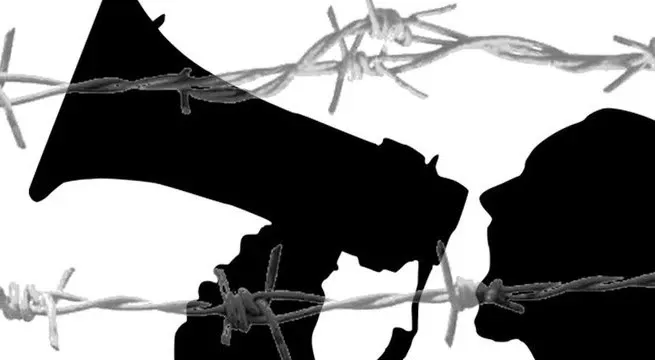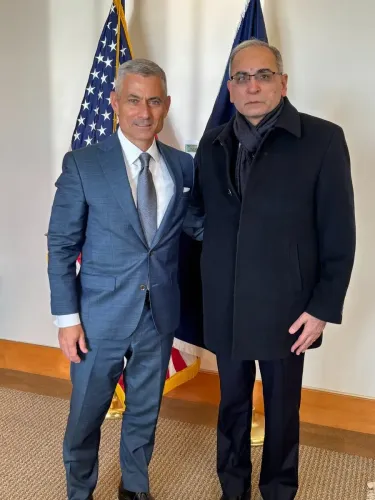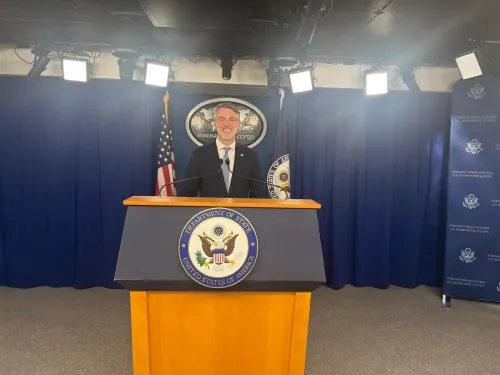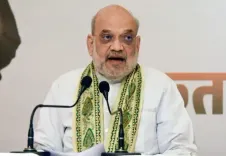Is Freedom of Expression Under Threat in Pakistan?

Synopsis
Key Takeaways
- Importance of safeguarding freedom of expression
- Need for reform in the PECA Act
- Concerns about the misuse of defamation laws
- Call for unity among civil society and media
- Emphasis on protecting digital rights
Islamabad, July 18 (NationPress) In light of rising apprehensions regarding the diminishing civil liberties, the Human Rights Commission of Pakistan (HRCP), in partnership with the European Union, organized a national roundtable in Islamabad to discuss the increasing constraints on freedom of expression and the rapidly contracting digital landscape in Pakistan.
The gathering united a diverse array of stakeholders, such as academics, civil society members, legal professionals, journalists, editors, and media practitioners, to address the ramifications of state-imposed restrictions and to devise collaborative approaches to safeguard constitutional rights.
During the session, Pakistani digital rights activist Farieha Aziz elaborated on the Prevention of Electronic Crimes (PECA) (Amendment) Act 2025, recently enacted by the Pakistani government, specifically highlighting Section 37, which bestows ambiguous and extensive powers to the Federal Investigation Agency (FIA).
Earlier this week, the International Federation of Journalists (IFJ) urged the Supreme Court of Pakistan (SC) to reevaluate the PECA legislation and direct the Shehbaz Sharif government to amend the act in collaboration with the Pakistan Federal Union of Journalists (PFUJ) and other relevant stakeholders.
The HRCP pointed out that several speakers noted the absence of due process in recent actions against online content creators. Journalists Matiullah Jan and Asad Ali Toor remarked that YouTube channels were being blocked without any prior notice or legitimate legal procedures.
“Reporters from Khyber Pakhtunkhwa and Balochistan emphasized the challenges faced in reporting from these provinces, stating that repression in remote areas has now spread to urban centers. There was a unanimous call for the repeal or, at the very least, the amendment of the PECA 2016 law and its 2025 amendment,” the HRCP underscored.
Pakistani television personality Absa Komal noted a shift in censorship strategies, evolving from arrests to economic pressure and institutional intimidation, causing many to engage in self-censorship. Amir Wasim, the resident editor of Dawn, echoed Komal's sentiments, as reported by the HRCP.
“Anchorperson and HRCP co-chair Munizae Jahangir cautioned that authorities could exploit divisions within civil society and the media. She advocated for the creation of an alliance encompassing all relevant stakeholders. Advocate Talha Sarfraz Khan stressed the importance of distinguishing between defamation and harassment,” the human rights organization added.
Throughout the session, Pakistani Lawyers Barrister Rida Hosain and advocate Usman Warraich criticized the abuse of defamation laws, designed to protect state institutions rather than citizens, highlighting the neglect of digital rights violations, which amount to a digital martial rule currently being experienced.
Former senator and HRCP council member Farhatullah Babar called for a commission to evaluate the misuse of blasphemy laws in conjunction with PECA and urged a review of digital surveillance.
HRCP secretary-general Harris Khalique concluded the roundtable by asserting that without freedom of expression, no rights issue - whether civil, economic, or social - can be raised or voiced. He emphasized that hate speech, online harassment, and incitement to violence must be regulated, but not the critique of state policies and political dissent,” the HRCP noted, outlining the restrictions on freedom of expression in Pakistan.









